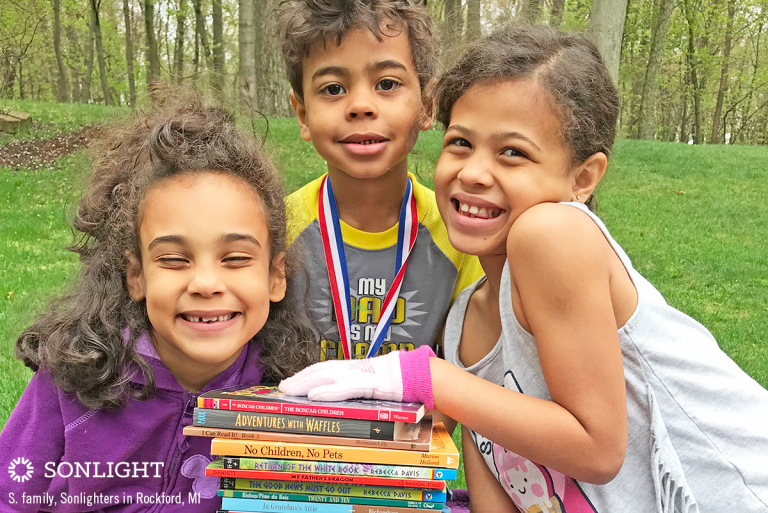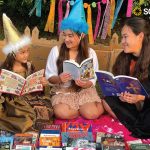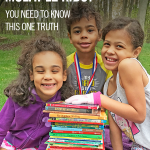
Are you homeschooling multiple kids? Have you ever opened your book to start reading only to realize you're missing at least one of them? This is my life everyday. Without fail, I’ll look up from the second page of the Read-Aloud to notice one child has run off to let the dog outside or grab a cup of water.
Admittedly for a long time this drove me crazy. To be completely honest, sometimes it still does.
Similar Experiences But Different Outcomes
If you have a similar issue, I want you to try a small experiment that helped me realize perhaps one of the most important lessons about homeschooling multiple kids.
Think of a recent family activity. It could be a Read-Aloud, a movie, or even a family vacation. Ask each child separately about the event: what they remember, what they liked, and what they disliked.
For instance, we recently took a beach trip. Both of my older kids spent a ton of time with their dad, collecting shells. They both had a chart of shell names which Dad helped them use to identify the shells in their buckets.
Once home, one child could recall the names of almost all of the shells. The other, who was much more interested in building sand structures and using the shells for castle decorations, was able to recall the names of only two.
Even though they were theoretically having the same experience—shelling with dad on the beach—their impressions were different. They retained different information and remembered different details.
Each Child's Unique Learning Journey
The same thing happens when you homeschool. If a topic sparks a child’s interest, he or she may be more taken with that subject than another child. So many things aside from sheer love of learning can also cause this effect. Sleep, exercise, diet, and social life all affect a child's unique experience on any given day.
This is a huge revelation! Even when given the same information under the exact same circumstances, our kids may hear, interpret, or process information differently. Our kids' learning experiences are going to be different. This is true even if we fight to make sure everyone is there and everyone is paying attention every single time we start to read.
Individualized Education
So, what can we do with this truth? We can learn to let go of trying to make sure all of our children have an identical education.
It’s not possible.
It’s not necessary.
It may even lessen one of the great benefits of homeschooling—being able to learn something new from each other.
If you always wait for everyone to be ready, healthy, and engaged every single time you start to read or go over new material, you will make little progress. You will also likely be frustrated and worry for your sanity. Let it go!
Although it was the hardest thing for me to accept when I first started homeschooling, not all of your children are going to learn the same thing everyday. In fact, that’s not a realistic expectation regardless of how you school or the ages of your children. All kids are different, and on different days they are all going to have different experiences.
No matter how hard you try, no one student’s schooling will be exactly like another. No student’s education is the same. And that is a good thing.
Sonlight works especially well for multiple children that are 1-3 years apart. Go to SmoothCourse to explore your options.








